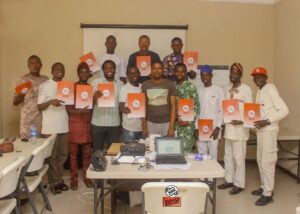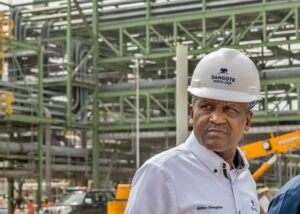2024 Budget of Hope!
In recent years, Nigeria has been grappling with economic challenges, exacerbated by a floundering budget that has failed to adequately prioritize capital projects. However, the 2024 Nigerian budget gives hope for a revitalization of the country’s infrastructure and development. It seems to have given capital projects a lease of life compared to the budgets of 2022 and 2023. As the government aims for better implementation, there is hope that this renewed focus on capital projects will bring about a better life for Nigerians.
The 2024 Nigerian budget allocates a significant portion of its funds to capital projects, signaling a shift in priorities towards infrastructure development. This is a stark contrast to the budget of 2022, which saw a substantial decrease in capital project allocation, and 2023, which continued the trend of underfunding critical infrastructure.
One of the key areas where the 2024 budget has shown a renewed focus on capital projects is in the transportation sector. The allocation for road construction, rehabilitation, and maintenance has been significantly increased, indicating a commitment to improving the country’s road network. This is essential for economic growth and development, as it will facilitate easier movement of goods and people, thus boosting trade and commerce.
Furthermore, the budget has also prioritized investments in the energy sector, with a substantial allocation for the construction of power plants and transmission infrastructure. This is a crucial step towards addressing Nigeria’s chronic power shortages, which have severely hampered economic growth and development. By investing in the energy sector, the government aims to provide reliable electricity to industries, households, and businesses, thereby spurring economic activity and improving the quality of life for Nigerians.
Another area that has received increased funding in the 2024 budget is education. The government has allocated funds for the construction and renovation of schools, as well as for the provision of essential learning materials. This investment is vital for the future of Nigeria, as it will help to improve the quality of education and provide better opportunities for the younger generation. By focusing on education infrastructure, the government is laying the groundwork for a more educated and skilled workforce, which is essential for driving economic growth and development.
In addition, the healthcare sector has also been given attention in the 2024 budget, with increased funding for the construction and renovation of hospitals and healthcare facilities. This is crucial for improving access to quality healthcare services for Nigerians, which has been a longstanding challenge. By investing in healthcare infrastructure, the government aims to provide better healthcare services, reduce mortality rates, and improve the overall well-being of the population.
Overall, the 2024 Nigerian budget appears to have reinvigorated the focus on capital projects, signaling a commitment to infrastructure development and economic growth. The increased allocations for road construction, energy, education, and healthcare infrastructure are indicative of a proactive approach towards addressing critical areas that have long been neglected.
However, the success of the 2024 budget lies in its implementation. The government must ensure that the allocated funds are effectively utilized and that the projects are completed in a timely manner. This will require efficient project management, transparency, and accountability to ensure that the funds are not misappropriated or wasted.
If the 2024 Nigerian budget is effectively implemented, it has the potential to bring about a better life for Nigerians. Improved infrastructure will spur economic growth, create employment opportunities, and enhance the overall standard of living. It will also contribute to the development of a more resilient and sustainable economy, positioning Nigeria as a competitive player in the global market.
In conclusion, the 2024 Nigerian budget represents a significant shift towards prioritizing capital projects and infrastructure development. With increased allocations for road construction, energy, education, and healthcare infrastructure, there is hope for a brighter and more prosperous future for Nigerians. The successful implementation of the budget is crucial, and the government must ensure that the allocated funds are utilized effectively to bring about tangible and lasting improvements in the country’s infrastructure and the lives of its people.
Otunba Abdulfalil Abayomi Odunowo
National Chairman ASTSG
4th January, 202






